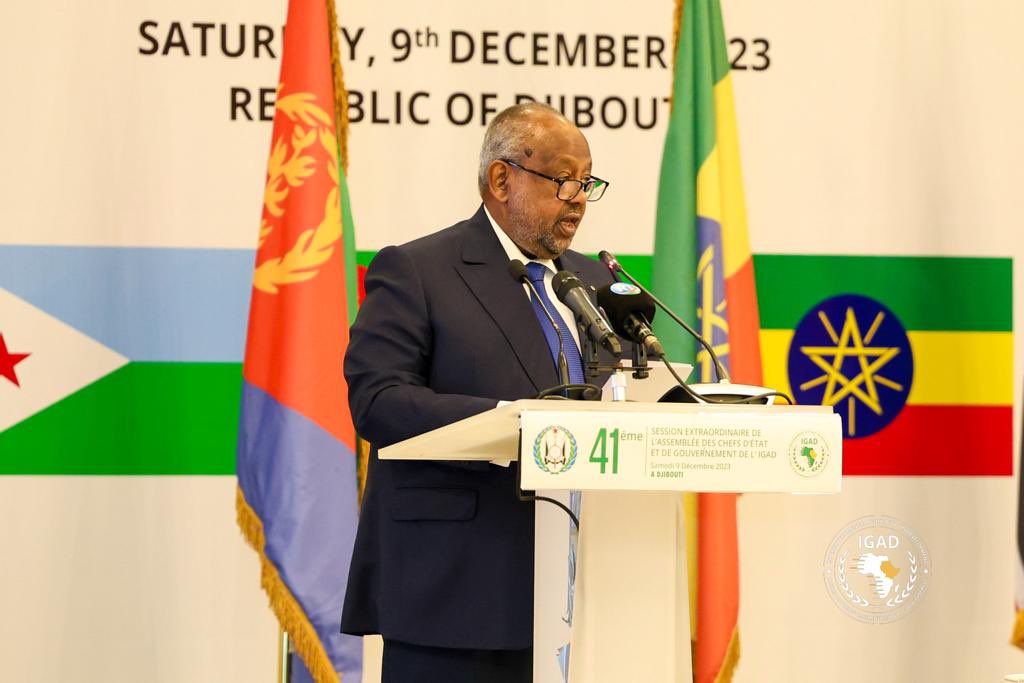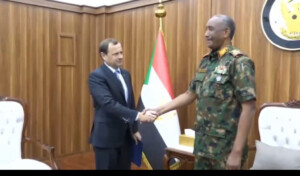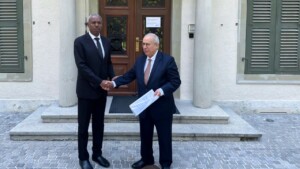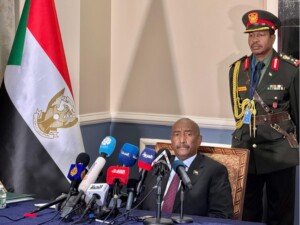Japan financially supports IGAD ‘peacebuilding process’ in Sudan

Djibouti President and IGAD Chairperson Ismail Guelleh during his address to the 41st Extraordinary Assembly session in December 2023 (Photo: IGAD Secretariat)
The Horn of Africa Intergovernmental Authority on Development (IGAD) and the government of Japan have officially signed a $500,000 grant agreement to support the ‘ongoing peacebuilding and conflict resolution process’ in Sudan.
In a joint press statement on March 19, IGAD and Japan express their concern about the consequences of “a political conflict turned war”.
“The humanitarian situation in Sudan is deteriorating day by day,” Kentaro Mizuuchi, Chargé d’affaires of Japan to Sudan, said.
“Japan demands all parties of this conflict a serious effort to end the hostility through reaching an effective ceasefire to end the crisis and the suffering of the innocents. We respect all local, regional, and international effort towards peace building, hoping Japan’s contribution will furnish momentum to advance such initiatives through the IGAD platform.
“We particularly believe in IGAD’s commitment to solving African issues within Africa as Japan is fully committed to supporting the agency and autonomy of the region as its sincere partner.”
The statement explains that “collaboration between IGAD and Japan signifies a shared commitment to fostering stability and prosperity in Sudan and underscores the importance of international cooperation in addressing complex humanitarian challenges.
“IGAD remains committed to collaborating with Japan and other partners and stakeholders to collectively find a lasting solution to the conflict in Sudan.”
Envoys, talks
On Tuesday, the Horn of Africa organisation announced the appointment of Lawrence Korbandy, a South Sudanese diplomat and lawyer, as IGAD special envoy for Sudan.
The IGAD summit in Entebbe, Uganda, in January agreed on direct talks between Lt Gen Abdelfattah El Burhan, head of Sudan’s Sovereignty Council and commander of the Sudanese Armed Forces (SAF) and Lt Gen Mohamed ‘Hemedti’ Dagalo, commander of the paramilitary Rapid Support Forces (RSF).
The summit included a comprehensive briefing from Hemedti about his vision to halt the war. El Burhan did not attend, underscoring the mounting tension between the de facto Sudanese government in Port Sudan and IGAD currently chaired by Djibouti.
It is not clear yet how IGAD visualises new negotiations between the warring parties, and if or how the organisation will work together with other initiatives, such as the Jeddah platform set up by Saudi Arabia and the USA, which was suspended last year.
The USA on February 26 also appointed a special envoy to Sudan, Tom Perriello, who has “extensive experience with peace, security and transitional justice issues on the African continent”.
In March, Perriello visited countries of the Horn of Africa, talked with Sudanese politicians and activists, including the Civil Democratic Forces (Tagadom) chaired by former PM Abdalla Hamdok, and with officials in Egypt, Saudi Arabia, and the United Arab Emirates.
He told reporters on March 21 that he hopes that talks between Sudan’s warring parties will resume in April, and suggested that Jeddah “can be an area that brings together pieces that have been emerging in Cairo and in Manama and other places”.
The SAF have repeatedly stated that they will only appear at the negation table after the withdrawal of the RSF from urban areas.









 and then
and then